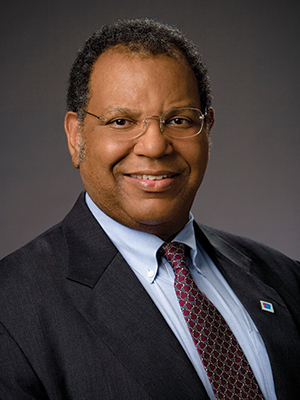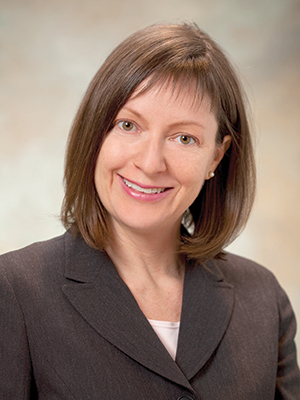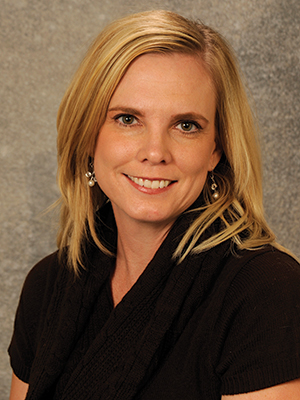My father has been diagnosed with cancer. How do I ensure that he gets the best care?

Otis Brawley, Chief Medical Officer of the American Cancer Society in Atlanta Photo courtesy of The American Cancer Society
OTIS BRAWLEY: Check to make sure that your father’s treatment protocol falls in line with recommendations by the National Comprehensive Cancer Network (NCCN) and the National Cancer Institute (NCI) Physician Data Query (PDQ). The NCCN, an alliance of leading cancer centers, publishes treatment recommendations based on a consensus of experts. PDQ, which is the NCI’s comprehensive cancer database, provides frequently updated, peer-reviewed and evidence-based professional treatment summaries for various cancers. You can also search online to contact a reputable patient advocacy group for your father’s specific type of cancer.
If you are looking for specialty care or surgery, don’t be afraid to ask your father’s doctor or surgeon how much experience he or she has with your dad’s type of cancer. For example, only a small number of surgeons perform pancreatic surgery or radical prostatectomy because it is highly technical, and outcomes in these surgeries are directly related to the experience of the person doing the procedure.
You also have to be careful to avoid some common but questionable practices. I’d stay away from facilities or doctors promising results that other hospitals don’t promise. I see advertisements that include the statement “results not typical” in small print at the bottom, for example. Some organizations market their survival statistics as a selling point. Oftentimes, these statistics have an inherent selection bias. This means that some facilities recruit patients who aren’t as sick. In fact, some institutions are known for referring their patients elsewhere as soon as they get very sick.
You should also avoid hospitals that charge above the standard rates for care. Insurance companies provide rates that are generally geared toward industry standards. Some organizations will charge more and ask you to pay the difference.
Above all, make sure your father is comfortable talking with his doctor. He can also explore getting a second opinion from another doctor for extra assurance. If your dad’s doctor doesn’t want him to get a second opinion, that could be a warning that it might be time to seek a different health care provider.
GETTING THE BEST CARE // The National Cancer Institute Physician Data Query provides treatment recommendations for more than 70 types of cancer, including rare cancers. // The American Cancer Society publishes lists of questions to ask your doctor. The questions are tailored to some of the most common cancer types. // The National Comprehensive Cancer Network offers detailed booklets about different cancers and related treatments.
I am adopted and have no idea about my family medical history. Should I get genetic testing to find out my risk for cancer?

Ellen Matloff, Director of Cancer Genetic Counseling at Yale Cancer Center in New Haven, Conn.
ELLEN MATLOFF: I wouldn’t recommend genetic testing since it is rare for most people to carry a genetic mutation in one of the known hereditary cancer genes. For example, estimates of the odds of carrying a BRCA gene mutation, which increases the risk for breast and ovarian cancers and other cancers, range from one in 300 to one in 800 people.
However, individuals of Jewish ancestry linked to Central or Eastern Europe do have a heightened risk for these mutations. One out of every 40 of these people, known as Ashkenazi Jews, has a mutation in the BRCA1 or BRCA2 gene. Even so, current genetic testing recommendations for Ashkenazi Jews still rely on your or a family member’s previous cancer diagnosis.
In general, at least 10 to 15 percent of Americans have a personal or family history that would warrant genetic counseling by a certified genetic counselor to explore whether or not they would be a candidate for genetic testing. If you decide to pursue genetic counseling, a physician can refer you to a certified genetic counselor who can help educate you about your options. Without a family history or a previous cancer diagnosis, however, you may have difficulty getting this testing reimbursed by an insurance provider.
Avoid direct-to-consumer genetic testing. Just recently, the U.S. Food and Drug Administration (FDA) forced 23andMe, a direct-to-consumer genetic testing company, to stop manufacturing and marketing genetic tests that the company claimed could detect risk for up to 250 diseases. The FDA indicated that 23andMe never backed up its health claims with valid studies—despite the agency’s repeated requests for the information. (The company is still marketing genetic testing to track ancestry.)
In 2010, the U.S. Government Accountability Office (GAO) published a report concluding that four direct-to-consumer genetic tests had little to no practical use for consumers. The GAO report used five volunteer donors who sent samples to four direct-to-consumer companies. One donor received conflicting results from the companies indicating he was at high, below average and average risk for prostate cancer. For another donor, two tests indicated her chances of getting breast cancer were above average, while two other tests suggested she was at average risk.
If you want to minimize your risk of getting cancer, you can always focus on making healthy lifestyle choices. Cigarette smoking and obesity, for example, can increase your risk for developing cancer. One study, using NCI data, estimated that in 2007 in the United States, about 34,000 new cases of cancer in men and 50,500 in women were linked to obesity. You can work to decrease your cancer risk every day through healthy eating and exercising.
GENETIC TESTING // The National Society of Genetic Counselors provides a searchable database of certified genetic counselors. // The Fred Hutchinson Cancer Research Center publishes information about cancer risk for people of Ashkenazi Jewish ancestry. // The National Cancer Institute publishes a fact sheet on BRCA1 and BRCA2 testing.
While undergoing treatment, I’m not sure how I will feel day to day. How do I respond if I’m not up to seeing people who want to visit?

Michele Mitchell, Manager of Patient Relations at Children’s Hospital Colorado in Aurora Photo courtesy of Children’s Hospital Colorado in Aurora
MICHELE MITCHELL: It’s OK to verbalize your feelings when you’re too tired for visitors. You might say, “I’m not feeling well, but let’s just reschedule for another day.” It’s not easy to make a request for space, especially since you know people are genuinely trying to help. But you need to be respectful of your own needs. It’s especially important to tap into and connect with the things that are healing to you, whether that is spending time with one or two people or just taking the day for yourself to recharge.
Setting boundaries around your visits can also be useful. I have worked with families who feel comfortable setting times for visits. The patient then is able to prepare for and enjoy the time, but also knows he or she won’t be too tired after “visiting hours” are over. Some families have even made a laminated card they hang on the door. One side is green, meaning they are accepting visitors, while the other side is red, which means the patient is not feeling up to seeing people. This is commonly done in hospital rooms, but some have used this approach in their houses as well.
If it’s hard for you to set these kinds of boundaries, you can ask an assertive friend or a family member to help you. This point person can communicate to others what your needs are, such as good times to visit.
Online tools that allow patients and their families to create secure website communities so that people with illnesses can stay connected to loved ones can also help. These websites generally include a calendar that allows users to schedule open times for visits. You or a family member can also make requests for friends to run errands, provide child care or make meals. Family and friends can log on to the site to offer help with any given task. These sites can also act as a “virtual visit,” connecting you with family and friends, who can send you emails when you are too sick to accept visitors. Depending on your comfort level, you could even post updates and pictures and share progress.
An outpouring of support can be comforting, but it can also be overwhelming. Remember, there’s not any wrong or right way to express your needs. The key is finding what works best for you. Most of all, try to keep things as normal as possible, doing what feels right to you.
KEEPING IN TOUCH // The American Society of Clinical Oncology offers guidance for caring for a friend, including ground rules for visiting. // The Mayo Clinic provides tips for keeping friendships strong and reconnecting with loved ones after treatment. // MyLifeLine.org allows cancer patients and caregivers to use calendars and create customized websites to post progress.
Cancer Today magazine is free to cancer patients, survivors and caregivers who live in the U.S. Subscribe here to receive four issues per year.




